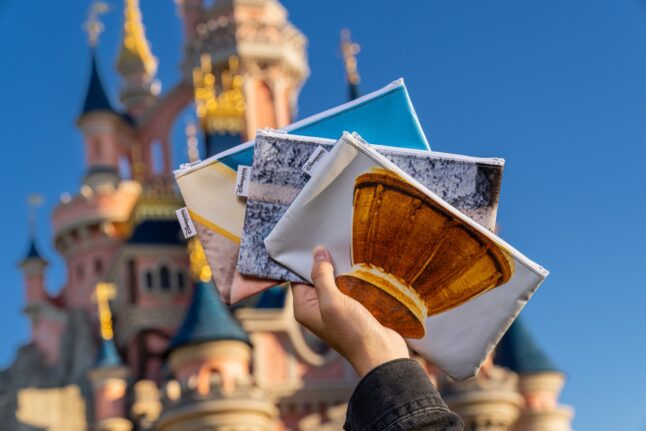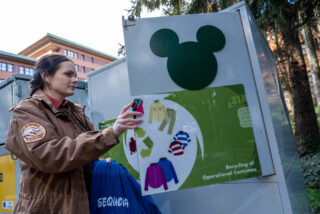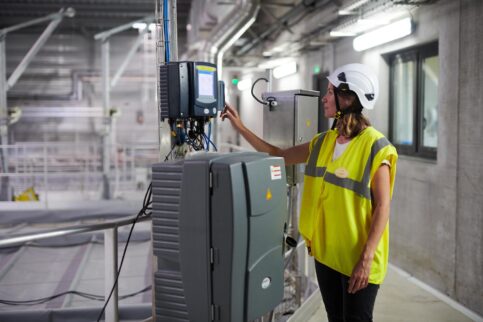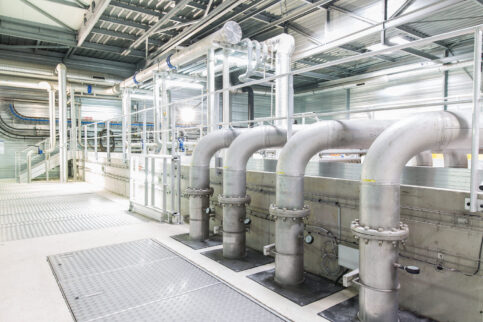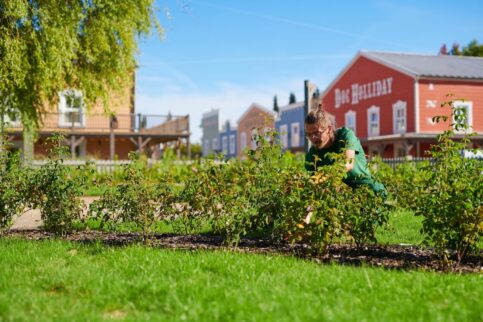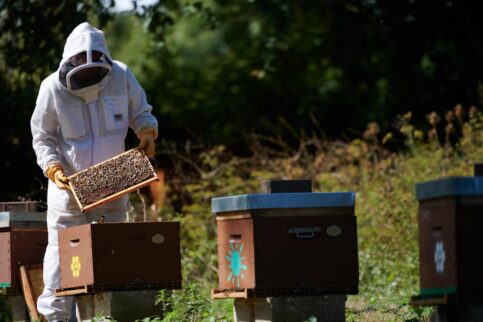Disneyland Paris to complete final phase of the largest European solar canopy plant by end of 2023
Published: April 10, 2023 / Last Updated: April 10, 2023 / By: Arvid Bux
The solar canopy plant under construction at Disneyland Paris since 2020 already produces 27 GWh of energy and will produce 36 GWh per year upon completion at the end of 2023. This initiative is part of resort actions for the environment, supporting The Walt Disney Company’s 2030 environmental goals. Specific to Disneyland Paris, some areas guiding actions and projects include emissions, materials, waste and circular economy, water management, and biodiversity.
Emissions: 46.2% reduction in direct operations (scopes 1 & 2) and 27.5% reduction in indirect emissions (scope 3) by 2030
Disneyland Paris has positioned itself as a leader in this space by implementing several concrete solutions, such as using its 20-hectare guest parking lot to build the largest solar canopy plant in Europe. This construction, which began in 2020 as a co-investment with French group Urbasolar, will cover 11,200 parking spaces, including spaces for cars, camper vans, and buses when it is complete. The installation already provides additional experience enhancements for guests, such as shade and shelter from direct sunlight, rain, or snow. This ambitious project will produce 36 GWh per year, equal to the consumption of a town of 17,400 inhabitants. It will reduce greenhouse gas emissions by approximately 890 tons of CO2 per year in the Val d’Europe territory. The third section of the plant is now operational, producing 27 GWh of energy thanks to the 63,000 solar panels already installed. Construction of the final section is now underway.
“As the top tourist destination in Europe, we have a responsibility to continue to operate and grow our business in a way that will allow us to deliver a positive environmental legacy for future generations. From our day-to-day operations to the implementation of new and ambitious projects – such as the installation of a solar canopy plant on our guest parking lot – we are more than ever adopting a deliberate approach to mitigate our environmental footprint effectively,” says Natacha Rafalski, Présidente of Disneyland Paris.
Disneyland Paris also uses geothermal energy to cover 18% of its annual needs. This represents a significant contribution to the reduction of energy usage and emissions for direct operations. The resort has also implemented a sustainable purchasing policy as part of its plan to reduce indirect emissions.
In addition, to further raise awareness and engage with our guests, the digital platform “My Green Butler” is currently being tested at Disney Davy Crockett Ranch. Deployed in some bungalows, this initiative enables guests to control their water and electricity consumption during their stay.
A strong focus on materials, waste, and circular economy
In accordance with French and European regulations on anti-waste practices and the circular economy, Disneyland Paris has developed actions such as the deployment of reusable tableware in all quick-service restaurants. Other projects are currently being tested, such as two ‘agro-digestors’ connected to the resort’s wastewater treatment plant, allowing food waste to be completely transformed into the water used for watering plants.
Recycling and upcycling initiatives are also part of our strategy. With thousands of employees working in operational areas, using a significant amount of clothing, the resort has a recycling policy to reuse the fabric from costumes once they can no longer be worn. This represents an annual recycling target of 50,000 clothing pieces per year. Upcycling will become increasingly important in the future to reduce waste and promote resource sustainability. This follows the successful upcycling of the tarp used during the refurbishment of Sleeping Beauty Castle in 2022.
Conserving water resources and optimizing consumption: 4 million cubic meters of drinking water saved since 2013 through a wastewater treatment plant
Disneyland Paris was the first theme park in Europe to equip itself with its own wastewater treatment plant in 2013 for its two parks and the Disneyland Hotel. Ninety-five percent of the treated water is reused for various purposes, such as watering landscaped areas or cleaning roads and pavements. To avoid unnecessary watering, the Horticulture teams use a ‘reasoned irrigation system’, which means that the right amount of water is used according to the plants’ needs. Since 2013, 4 million cubic meters of drinking water have been saved thanks to the plant.
Other experimental initiatives are being implemented, such as the deployment of ‘Hydrao’ showerheads at Disney Sequoia Lodge and some bungalows at Disney Davy Crockett Ranch. A successful test period in Spring 2022 showed that this fun system using color-changing showerheads helped reduce water consumption in showers by up to 22%.
Protecting and encouraging biodiversity through 450 hectares of green spaces
Disneyland Paris has long focused on the preservation of biodiversity within the resort and aims to raise awareness among children and adults about the importance of environmental preservation. The Landscaping team, which represents more than 100 Cast Members, cares daily for 450 hectares of green spaces, 330,000 shrubs and bushes, 7,400 square meters of flowerbeds, 33,000 trees, more than 20 species of fruit trees, and more than 50 varieties of wildflowers and plants.
Disney Hotel Cheyenne also has a vegetable garden, with 245 square meters of cultivated area out of 470 square meters in total surface area. This garden allows the organic cultivation of several varieties of vegetables, fruits, and herbs to be used by guests staying at Disney Hotel Cheyenne and Disney Hotel Santa Fe.
Related Pages
Related Park(s): Walt Disney Studios Park, Disneyland Park
Related Hotel(s): Disney’s Davy Crockett Ranch, Disney’s Hotel Santa Fe, Disney’s Hotel Cheyenne

